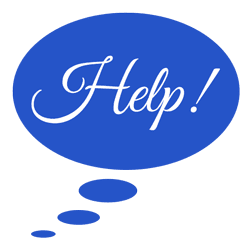1 888-488-8434
Referral Service
Private Treatment Centers
in Canada
It is a drug that causes impaired behaviour, judgment, coordination, and slurred speech. Alcohol is generally socially acceptable and is Canada’s major drug of addiction. Its widespread usage and social acceptance make it the most common drug in the world. But many do not know that alcohol and depression go hand in hand in most cases.

1 888-488-8434
Toll-free Number
Feelings of depression are common after drinking, especially for those who drink regularly. Alcoholics struggle with depression, and it becomes worse the longer they drink. The drug has a significant impact on the mind and body.
Drug rehabilitation is the first step for alcoholism and often resolves depression. Instead, many get prescribed antidepressants thinking it will solve the problem. But it becomes an endless vicious circle of relapse and depression. The first cause being misdiagnosed.
Here is why alcohol creates depression.
Alcohol is a central nervous system depressant. A depressant slows down brain functions and neural activity. It lessens a nerve cell’s ability to receive, create or send chemical messages to other nerve cells. Alcohol increases the effects of some chemicals, including the neurotransmitter GABA which produces the major effect of the drug.
When an alcoholic no longer has the drug in the body, these essential neurochemicals are at lower levels. So an alcoholic who is not drinking is in a depressive and anxious state. A person drinks more alcohol to have a feel-good feeling. Unfortunately, the more a person consumes, the more the condition develops. As mentioned above, it is the most widespread addiction in the world.
A person struggling with a substance abuse issue will be placed on mood medication at one point during their addiction. It often happens at the beginning when the person is still functional. For example, heavy weekend drinkers and cocaine users have trouble with sleep and feel depressed, which is typical drug use.
Instead of looking at lifestyle habits, the doctor puts them on antidepressants or sleeping medication. Unfortunately, the average physician sees a patient every 15 to 20 minutes. This time with the patient is not enough to get the big picture.
Someone who is headed toward addiction or is addicted is often put on prescription drugs. Physicians will prescribe antidepressants because the symptoms of the addiction coincide with depression. Unfortunately, it happens too often, the addiction is unnoticed, and the problem persists.
If you see this applies to you or someone you know, realize a problem exists. We encourage honesty when you speak to any medical professional. Mention your depressive feeling as well as your drinking.
Alcohol is an easy way to numb depression, but it doesn’t solve anything; it makes it endless.
Research shows that identifying depression is crucial. Not all depressed alcoholic needs antidepressants. But the feelings of depression can lessen drastically when the underlying alcohol abuse is treated.
Other studies show a justifiable need to identify depression among alcohol-dependent patients. But treating alcohol dependence first will improve overall well-being. Then a new diagnosis can be given.
No one solution fits all for treatment and recovery. Find the rehabilitation, support, and recovery options that meet your individual needs. Drug-free living is entirely achievable. Call our referral counsellor if you need help.

1 888-488-8434
Toll-free Number